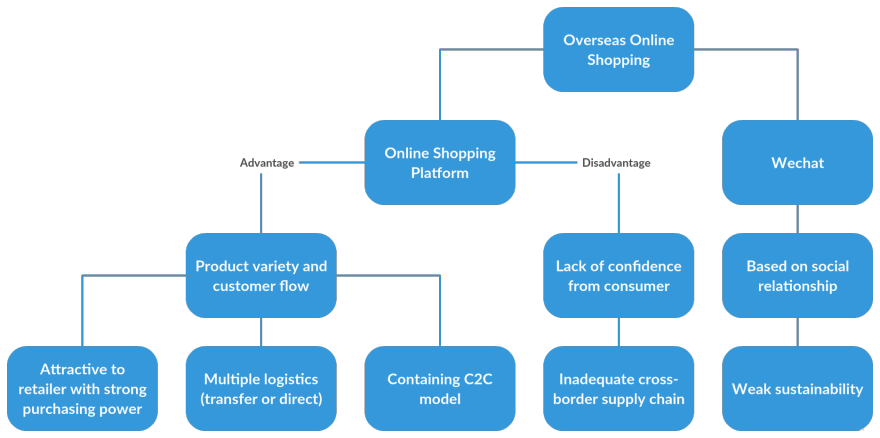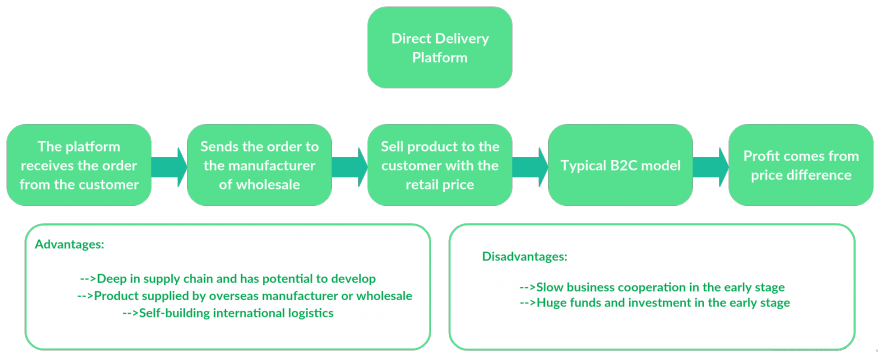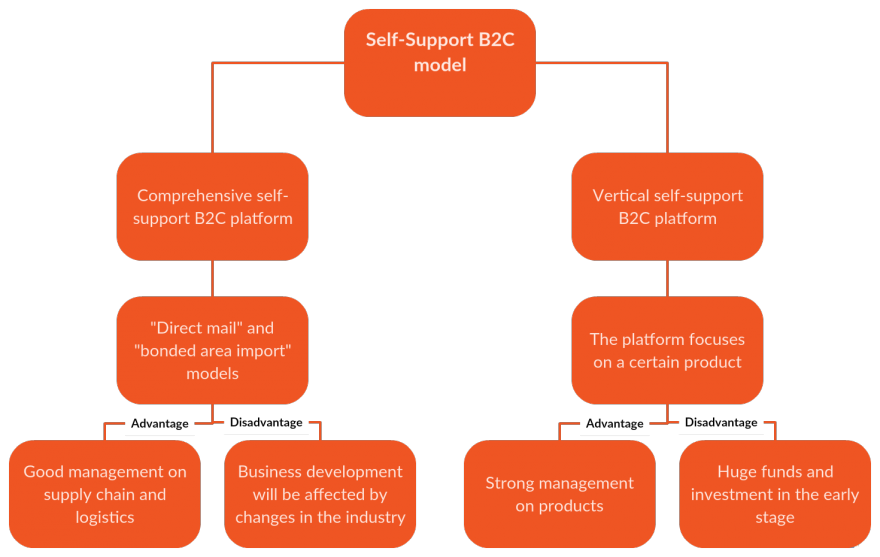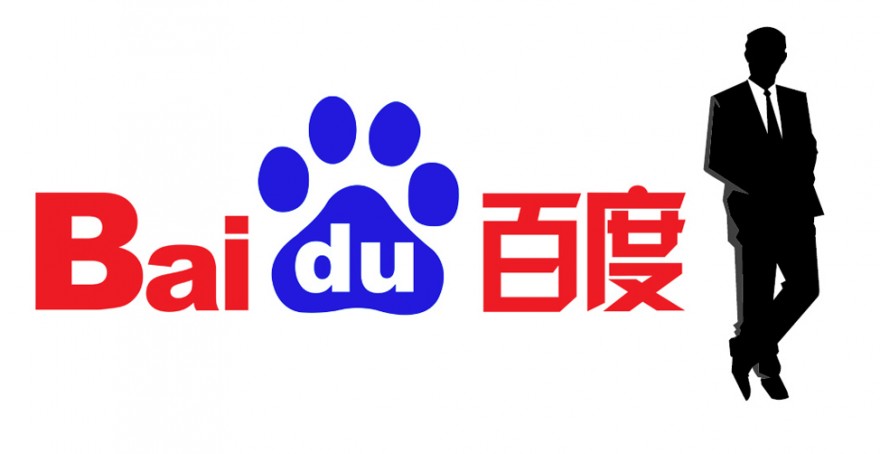Business Theory and Practice in China – Not what you’d expect
Have you ever asked somebody how to do something in China and gotten an unclear or contradictory answer? Worry no more my dear reader, getting to know things before actually doing them in China is extremely difficult, here is why!
Not all questions have a vague answer to them, we are mainly focusing on business related topics, to be more specific, new business models that are being implemented, for instance, WeChat account management, DSP advertising purchases, or cross-border e-commerce are among the main ones that seem to have a variety of answers to them.
Why? You might be wondering, well, these fields are fairly new and still need to mature a bit. This is the main reason why there is no general consensus yet, it basically comes down to who you are asking. A logistics company won’t give you the same answer as the Chinese Customs Administration, nor will an online e-commerce platform or a Chinese businessperson, everyone has a different perspective on the matter, finding out what works for you might be difficult.
In reality, nobody is 100% sure on how things should be done, in fact, it seems like everybody is experimenting with it. The information lacks, is unclear, or contradictory, so you ask yourself, what should I do in order to carry out my business in China?

Your first, and probably wisest option, would be to get in touch with 2 Open, we are used to deal with these types of problems all the time. Facing new challenges and pioneering is one our main strengths and we would be more than happy to help your business achieve its full potential.
Your second option would be to run a pilot test. Getting things right before actually starting is a smart thing to do. Try running some test orders and look at the problems that arise with its delivery process. This will not only give you the knowledge you need but will also let to know the experience you’ll be having later on. Even though this might not be as comfortable to do as it sounds, it certainly is the best way to go about it.
Apart form running this pilot test there is another important aspect you should keep in mind, that is trust. Uncertainty and risk taking are a part of these tests and having an honest trustworthy person on the other end is something that will help you solve any problems you might encounter. Trust issues within your working environment could harm the pace and results of your projects, this is something you might not want to take for granted.

All in all, trust is not enough, you also need to be patient, getting things right requires time and effort. Getting ahead of yourself without the knowledge required could costs you some precious time and money. Plan things ahead and gather all the information needed in order to succeed in the volatile Chinese market.
At 2 Open we have the experience and knowledge to develop your business in China. We not only know how solve problems but we also take that uncertainty on your behalf. Our team is passionate and enthusiastic about every project, our goal is to understand our clients business needs in order to provide the best possible services. If you have any questions or require any information about our services, please do not hesitate in contacting us, our group of specialists will happily assist you.
Don’t forget to subscribe to our monthly Newsletter.
This article was edited by Andres Arroyo Olson from 2Open.
Big Data and Precise Marketing – Tips from Baidu
Nowadays everyone is talking about big data, but what exactly is big data? How can we use it to benefit our business in China?
As we all know, Baidu is the biggest, and most popular, Chinese search engine with coverage of approximately 95% of China’s population. It receives around 6 billion search queries per day. With their countless backstage data, Baidu decided to move forward into the big data area and try to convert it into a high-value business service.
Last week 2Open attended a seminar about Baidu’s big data and precision marketing. Here are some point that were discussed during the event.

What is big data?
Big data is all about predictions, math applied to large quantities of data in order to infer probabilities. The big data will provide us with the new ability to crunch a vast collection of information, analyze it instantly, and draw conclusions from it.
Big data can be used in a variety of business field: cross marketing, precision marketing, reference location, credit investigation, quantity investigation, disease prediction and travel prediction etc.
For instance, by using Baidu’s big data, we can find out the crowdedness of certain touristic attractions and the popularity of the travel itinerary in China. With the help of this data we would be able to improve our travel plans since we would be avoiding crowded destinations.
Big data for marketing?
In the past Baidu cooperated with a motor company (to protect the advertiser’s rights we will refer to this company as Company A).
First of all, Company A wanted to launch a new A0 level car to the market, but they had no idea what the new car’s selling point was, more importantly, how to handle the pre-marketing and publication campaign. They decided to work with Baidu and used their big data service.
Secondly, Baidu identified consumer’s emotional needs by mining social data, and exploring differentiation opportunities by scanning the perception of other competitors. With all of this data they decided to use “happiness” as the communication concept/selling point of the new car.
Finally, by studying consumer’s profiles, identifying target audiences, and understanding different age groups by analysing their lifestyle and engagement occasions. The new car’s main target audience resulted to be 23-45 males, in tier3, tier4 and tier5 instead of tier1 and tier2 cities. This turned out to be the most important consumption market.
For lifestyle occasions, Baidu chose readings, videos, movies, TV series and gaming as the main five labels for determining their target audience. Company A even designed a LOL (League Of Legends, one of the most famous online games) poster ads.
For engagement occasions, there are five stages before the final purchase. Baidu defines them as; category research, comparative study, trial, finding 4S stores, and financial plan. Then they give related suggestion to company A for every stage of the marketing strategy.

Baidu named its big data & marketing decision platform “Sinan”(http://sinan.Baidu.com/). This platform mainly provides nine functions: audience definition, brand recognition, interest insight, search behaviour, demographics, geographic, media preferences, multiple data merge, and media buying suggestion. With the help of a big data platform like this any marketing strategy will be much easier for a company.
Still wondering about how to improve your business in China? Try embracing big data now! Or… get in touch with us. Here at 2Open we are passionate about every project. Our team of specialists have the expertise and knowledge that your company needs to thrive in the Chinese market. If you have any questions or require any information about our services, please do not hesitate in contacting us, we will be more than happy to assist you.
This article was edited by Andres Arroyo Olson from 2Open.
All you need to know about Ecommerce in China
The first quarter of 2016 is already behind us, are you still figuring out how to start your e-commerce business in China? For some of us e-commerce still feels like a new business model, however, China has long passed this stage, various data suggests that it has already become a traditional industry in China. Traditional or not, let us sort out the current e-commerce situation and forecast its areas of development.
Ecommerce is on its way to become a traditional industry in China
Ten years ago the ecommerce in China was brand new. Taobao was the most popular C2C online platform. At that time, people who had the technical skills and knowledge of search engines could get over 80% of return of investment on a Taobao shop. Nowadays, Taobao offers more than 1 billion products, has over 10 million sellers, and around 320 million active users. These huge numbers only come from one of Alibaba Group’s marketplace so you might be able to reckon the whole picture. After ten years high-speed development, China’s ecommerce is not a new industry anymore; its development is now as mature as the real estate or the catering industry.
Traditional industry vs Ecommerce
In recent years, the traditional industry has been strongly affected by the online market, some companies have managed to adapt their business to the new online scene, but some have failed at this task. This trend of transitioning from offline to online businesses will speed up this year, and although there are currently more traditional businesses than online ones, online businesses will eventually catch up.
It seems that both business models cannot co-exist, however, if the resourceful traditional industry would explore Chinese digital marketing and ecommerce solutions, they would be able to achieve better results with half the effort.

Develop a 020 (Online-to-Offline) business model
In coming years, online retailing will be a fully integrated part of the market, it will help companies grow, and sale more efficiently. On the other hand, they will also have to implement the offline part of it, a successful integration of a good O2O business will, without a doubt, thrive in market. Suning began handling deliveries for Alibaba, in order to push Tmall Supermarket into the massive market, and Jingdong is promoting Jingdong Daojia, all the actions from the leading Ecommerce companies indicate that the O2O model is inevitable to come.
Ecommerce in the rural areas
Last year ecommerce in rural areas had a rapid development. Alibaba made a long-term project to promote online shopping in order to expand its business coverage. The central government formally issued a document to help the promotion of rural ecommerce and facilitate the integration of online and offline. Alibaba, Jingdong and Suning are also pushing the development of ecommerce in rural areas so we should expect an huge increase this year.

Great development of CBEC (cross-border ecommerce)
Over the past 2 years, CBEC has become one of the most popular business models in China. It has given import business a lot of opportunities; moreover, since the Chinese middle class has grown considerably (first place in the world with over 100 million), it turns out to be a very profitable business. The main consumers are people between the ages of 30-40 and have great acceptance for foreign products, this will bring a lot of overseas ecommerce companies into the Chinese market.
Here at 2Open we specialize in ecommerce and digital marketing. Our goal is to understand our clients business needs in order to provide the best possible services. If you have any questions or require any information about our services, please do not hesitate in contacting us, our group of specialists will happily assist you.
This article was edited by Andres Arroyo Olson from 2Open.
Business Social Networks in China. Which one should I use?
China is an interesting country filled with peculiarities in the day-to-day life. Business culture is one of the many peculiarities that China has to offer. It is a country where business contacts play a more important role than in other countries, or should I say, a different role. For Chinese, it is crucial to have some “good friends” and with “good friends” I am referring to well-connected friends.
Chinese have one expression that refers to these types of relationships: “guanxi” (关系). “Guanxi” refers to all the personal influential networks that somebody has in the business field. It is the way they define the relationships they have and the networks in which they are involved. Chinese have a different point of view when it comes to “networking”, for them, the best contacts they have are the ones that they should be kept for themselves, they do not think it is appropriate to share this types of friends. Why should you trust somebody that you do not know?
Whether we like it or not, a “guanxi” is a fundamental part of the Chinese culture, especially for those who want to enter the Chinese market. It may end up being a huge barrier for those who are new to China and plan on developing their business here, however, if you have the proper references, multiple and unexpected opportunities can arise.
 Now, with respect to Online Social Business Networking, there are many different ways in which one can get in touch with interested parties. LinkedIn is the most important one with around 6 million users in China, as a matter of fact; it is currently the largest business network worldwide. Despite the fact that it is not a Chinese social network, it is not blocked by the great Chinese firewall, nevertheless, there are other competitors that have to be considered if one intents to enter the Chinese market.
Now, with respect to Online Social Business Networking, there are many different ways in which one can get in touch with interested parties. LinkedIn is the most important one with around 6 million users in China, as a matter of fact; it is currently the largest business network worldwide. Despite the fact that it is not a Chinese social network, it is not blocked by the great Chinese firewall, nevertheless, there are other competitors that have to be considered if one intents to enter the Chinese market.
Apart from LinkedIn there are many other popular Chinese alternatives, here is a list of the most popular ones:
Dajie 大街
With more than 30 million users, it is the largest business social network in China. When it comes to the Chinese market it has more users that LinkedIn, it must be said that younger people use it more frequently. Most of people registered do not have much working experience. This is the main reason why is commonly used by companies to recruit younger people who just got their degrees.
Tianji 天际网
It is the second largest in China with 20 million of users. This one is more similar to LinkedIn, which can be considered as a more professional alternative than Dajie. This social network is used for companies to find skilled professionals, it also makes is easier to find research and further specify the profile they are looking for.
Renhe 人和网
It also has more users than LinkedIn in China, but in comparison with the other two, it is quite smaller (7million). This webpage is more oriented to professional managers or administrative works. As a result, the financial and investment sectors, as well as executives, more commonly use it.
Wealink 若邻网
In China, this one is smaller than LinkedIn, with just 5 million users. The main difference with respect to the rest is that you can get access to almost all the content without having to be registered. The most common use for this social network is recruitment. Most of the ads on this website are posted by job seekers and recruiters.
Ushi 优士

It is really small compared to the rest (1.2 million users). Although it does not have so many users, it is very well known from abroad and this one has an English version. Actually, the functionality is really similar to the one from Linkedin, and that is why it is very useful for the non-Chinese people.
All in all, it is important to remark the importance of networking in China. Many contracts and businesses are being agreed on depending on the contacts that people have (“guanxi”). So, if someone wants to succeed in the extremely competitive Chinese market it is necessary to get some “good friends” that might be able to help you and your business. Social business networking is a good place to start and can help you develop these relationships which will consequently further develop you business in China, however, if you want to jumpstart your business you should get in touch with 2Open. If you have any questions or require any information about our services, please do not hesitate in contacting us, our group of specialists will happily assist you.
This article was edited by Andres Arroyo Olson from 2Open.
http://www.crccasia.com/program-details/whats-included/business-networking/
http://www.slideshare.net/sampimarketing/chinas-professional-networking-sites-overview-incl-linkedin
Jumpstart your E-commerce business in China
E-commerce in China is growing so rapidly and it appears to have big rewards for those who manage to thrive in the market. Problems for companies who want to enter China arise due to limited knowledge about the Chinese market and the variety of e-commerce platforms, but how exactly should you start your e-commerce business in China? Where should you start?
Indeed, there are countless B2C (Business-to-customer) e-commerce platforms in China, Tmall/Taobao are in the leading position, followed by JD, then VIP.com, Suning, Gome, Dangdang, YHD, Amazon China, and so on. Usually each platform has a deposit, some annual fees, and commissions. If your are starting your e-commerce business opening a Tmall/Taobao shop first would be a smart move from your part, later, when your business grows, you could extent and broaden your sales channels. You might be wondering, Why Tmall/Taobao? Why here and not in other platforms?
Firstly, let us look at this from an investor’s point of view, minimizing initial investment. For a Tmall shop different products and shop types have different deposit amounts that range from 50,000 RMB to 150,000 RMB. The annual service fees are 30,000 RMB or 60,000 RMB depending on the category, they may be half or totally refunded if the business is good enough to reach certain revenue. As for the commissions, different categories also have different commission rates, commissions in Tmall start from 0.5% to 5%, this is quite competitive since other usually range from 10% to 15%. After all, Tmall is mainly an open platform for all vendors.

Some small companies or cautious companies should consider starting with a Taobao shop. Taobao is supposed to be a C2C platform, since its requirements, compared to the ones of Tmall, are considerably lower, some small companies opt to start with a Taobao shop first. Why is this option so appealing to small companies? There are two types of Taobao shops to choose from, the first one is owned by a person and the second one is owned by a company. The personal Taobao shop can be upgraded into a company account if the owner is the legal representative or a shareholder. The best thing about Taobao is that it is free, you only need 1000 RMB as the deposit and Taobao has no annual fees or commissions. For those who are really cautious or lack resources, this might turn out to be a wise choice.
Secondly, let us analyse the human resource factor. You might have agencies working for you or maybe a few employees; however, trying to start with all channels at once may not always be the best option for your business. To successfully manage an e-commerce shop it takes dedication and time, even though opening a shop is not a difficult task, managing that shop is. Analyse, optimize traffic and content, and increase sales is something that requires time and focus. The target is to turn those open channels into productive channels, it is worth mentioning that most of these e-commerce platforms are similar or even copy Tmall/Taobao, so getting familiar with platforms is kind of like getting familiar with the e-commerce industry in China.
How is the e-commerce environment looking in China? Tmall/Taobao have been leading the free traffic in China for years, each day there are more than 40 million visitors on Taobao. Even Suning, Dangdang, YHD and Amazon China now opening their shops on Tmall.

As for the payment side, Taobao/Tmall have their own payment method, Alipay. With more than 0.3 billion registered users, 0.27 billion active users, and links to over 180 banks both in China and other countries, Alipay is the largest third party online payment platform in China, some active users even use Alipay to pay for their home power, gas and water fees. It makes it easier for consumers to pay.
Finally, let us discuss product control. Since Tmall/Taobao are mainly open platforms, vendors have almost fully control of their products. You can categorize the type of product your selling, upload or remove it anytime you want and also have full control of the price and logistics company you want to use to deliver your products.
So if you are planning on entering the Chinses market through e-commerce you might want to start with a Tmall or Taobao shop first. Here at 2Open we specialize in digital marketing and e-commerce, our goal is to understand our clients business needs, in order to provide the best possible services. If you have any questions or require any information about our services, please do not hesitate in contacting us, our group of specialists will happily assist you.
This article was edited by Andres Arroyo Olson from 2Open.
References:
What you need to know about Cross-Border ecommerce for China
Nowadays cross-border ecommerce is in the rise in China. It seems to be a viable and legal way to import or export products into or out of China avoiding significant tariffs and quotas. Apart from the traditional model of cross-border ecommerce, that is, overseas online shopping, we have classified 4 specific operational models of cross-border ecommerce according to their different business schemes.
- Overseas online shopping
- Direct delivery platform
- Self-support B2C model
- Guide and rebate shopping model
1. Overseas online shopping
Overseas online shopping is perhaps the one that is most familiar to Chinese consumers. It is a sort of procurement service for people who want to buy the overseas products. Consumers purchase the products from foreign retailers or individuals on web pages or mobile apps, and then they get the product by transnational logistics. There are two major ways so accomplish this.
Online shopping platforms
One of the main points an online shopping platform has to do is to attract third-party sellers who meet the logistics requirements. Sellers settled in the platform usually have overseas purchasing power; they regularly purchase the specific product based on consumers’ needs and after the order is received from the customer they transport or mail the product directly to China. This is a typical example of a C2C model, the online platform profits from access fees, add-value services, and transaction fees imposed to the seller.
Representative platforms: G.TAOBAO.COM/JD WORLDWIDE/USASHOPCN.COM
Wechat “moments”
“Moments” in Wechat is becoming a popular way for promoting products online. Although its warranty is mostly based on social relationships, fraud could also occur. With customs restrictions the service would be regarded as smuggling, so there still time to wait for the integration of it in the overseas online shopping environment.

2. Direct delivery platform
Direct delivery platform, also named “dropshipping”, is a model in which the ecommerce platform sends the order from the customer to the manufacturer or wholesale directly, then the latter delivers the product to the customer according to the information provided, it is important to notice that the product is sold with its retail price. Because the end-supplier is the brand vendor/factory, this model could be considered a B2C model. In this case, most of the profit for the direct delivery platform comes from the price difference between the retail price and the wholesale price.
Representative platforms: TMALL.HK/YMATOU.COM/KJT.COM

3. Self-support B2C model
When it comes to the self-support B2C model, most products need to be prepared by the online platform before shipping. There are two types of self-support B2C platforms:
Comprehensive self-support B2C platform
For now the only leading comprehensive self-support B2C platform is YHD.COM, which is supported by Amazon and Wal-Mart.
Vertical self-support B2C platform
This model means that the platform focuses more on a certain area to choose the product category, such as food, luxury product, cosmetic or clothing.
Representative platforms: WOMAI.COM/MIA.COM/SASA.COM

4. Guide and rebate shopping model
For a simpler understanding we will split this topic into two parts, the conduction part and the transactional part. Conduction refers to all the means and channels through which customers are led to the product or service: news, online forums, blogs, or ads, all constitute a part of conduction and focus on attracting the consumer. As for the transactional part it involves the submission of the order to an overseas retailer and any monetarily transaction that comes with it.
In order to guarantee product quality and adequacy, this types of platforms usually cooperate with an overseas ecommerce group. Normally the guiding/rebating platform in China joins their pages with the overseas ecommerce pages and once the transaction is done, the overseas ecommerce gives about 5%-15% commission rebate to the Chinese platform. Later the guiding/rebating platform refunds part of the commission to the customer.
One of the main advantages of this model is that the integration of new products and the development of the business itself are relatively simple. Also, because it is a joint between two online platforms, the conduction part results more rewarding since both parties can attract a huge number of customers in a short amount of time and meet the customers’ demands.
As for the disadvantages, long-term projects might be a bit more difficult to carry out since the business depends on two separate ecommerce platforms. Management of the supply chain could also become a problem due to distance and time zone differences.
Representative platforms: ETAO.COM/HAITAOCHENG.COM/123HAITAO.COM

Cross-border negotiations seem to bring a lot of advantages if one is intending to do business with China. Choosing the right model for your business’ needs is crucial for the growth and success of it. Here at 2Open we have plenty of experience with these types of business models and our team of specialists will be more than happy to assist you with any enquiry that you might have.
This article was edited by Andres Arroyo Olson from 2Open.
Online to Offline (O2O) in China
E-commerce has grown internationally over the past few years; China is one of the countries with the fastest e-commerce growing market, Alibaba has become the largest business-to-business (B2B) platform in the world. Tmall is the largest business-to-customer (B2C) website in Asia, with more than 90 billion RMB in revenue recorded on Nov 11, 2015(China’s “Singles Day”). Despite their success, return rates have also grown accordingly. Compared with offline physical shops purchases, online shops experience a higher rate of refunds and exchanges. The lack of the buyer experience is perhaps the biggest weakness of e-commerce, that is the main reason why the online to offline (O2O) business strategy was created.
O2O is a business model where companies attract potential buyers to their physical stores through online marketing strategies. These strategies often consist in in-store pick up of items purchased online as well as offering the option of buying or experiencing the items directly at the store.
Fast moving consumer goods do not really have to offer the buyer experience since they are expected to sell quickly and for a low price, this is the main reason why O2O does not really suit this field. Durable consumer goods, like clothing, seem to have a huge potential, they are probably the best candidates for the implementation of O2. Let us say, for instance, that you would like to buy a new camera, you compare all the features of several models online, experience them in physical shops and then after you finally decided the model, you would simply place order online for a reasonable price. Everything fits perfectly. There has been an ongoing talk about this for years, Manufacturers know this, they would like to see this, but unfortunately results are not ideal.

Why is it so difficult for O2O commerce to evolve? Who has the advantages to start implementing an O2O business model? Should large Manufacturers, like those who own multiple shops, implement it? Should offline chain shops do it? Logistics companies? Online platforms? These are questions that have to be discussed. Let us talk about these one by one.
Most Manufacturers with lots of physical shops operate offline, they usually carry out the traditional business scheme; they manage shops and focus resources on shops rather than the end users. Very few manufacturers have their own Customer Relationship Management (CRM) system for consumers, and even when they do, what happens to the employees at the shops? Sales volumes usually measure commissions and performance for employees, however with an O2O business model it makes it harder for manufacturers to keep track of their physical shops and employees performance. No companies have solutions for this, so employees in physical shops resist O2O, so for manufactures O2O is harder to be executed.

In the case of offline chain shops, employees manage products rather than sell them directly, and they have CRM systems for most of the consumers. The real problems these companies face is related to online traffic, do their offline consumers also have the habit of buying online? Even if they do, do they know the chain shops started an online business? Despite the attractiveness of implementing a fully online business, they are still more likely to succeed with a O2O business model. Suning is a real life example of this, with thousands of offline physical shops of household appliances, also expanding its categories one store at a time, and being the third in the Chinese E-commerce field. Their market share is a little more than 3%, far behind the first two companies, O2O is the trend but there is still a long way to go.
What about Logistics companies? Logistics means warehouses and more detailed consumer data; this is the main advantage here. SF-express started Hi-ke in 2014; the goal was to steal market shares from online platforms like Tmall and JD with SF-express’ logistics. This resulted in a lack of experience for consumers and complex order placing procedures.
Online platforms should also implement O2O for one reason, to keep the current e-commerce market share. Tmall and JD just started this; we will have to wait to see how it works out. Their weakness is still the lack of physical shop operation experiences.
O2O needs someone who can successfully implement the business model, in China currently there has been no one who had manage to do this, it seems that what the market needs is a pioneer in this field, future is bright, and the market gap is there, let us wait and see who will rise up.
This article was edited by Andres Arroyo Olson from 2Open.
The Great Firewall: a barrier for foreigners who live in China
China is a very attractive country, rich in culture and full of traditions that appeal to most foreigners, it is also a place that offers considerable rewards for those who are seeking business opportunities. Despite its attractiveness there are some cultural barriers every foreigner has to overcome if they are planning to live in China, and these could sometimes turn out to be quite exasperating. In order to get a regular life in China, a “lǎowài” (老外term used by Chinese to refer to foreigners) has a few things to keep in mind, visas, language food and the business cultural differences, etc.
Apart from these issues, one of the greatest problems “lǎowài” face is Internet censorship. In this country there is a great firewall that blocks many foreign websites. In theory, this firewall was created with the objective of avoiding citizens’ protests against government and thereby they can filter all the content that is not suitable for the government’s interests, in a way they are trying to protect their citizens from unsuitable foreign media. Many of the websites with the highest traffic from the rest of the world cannot be accessed from the people’s republic of China. Webpages like: Google, Facebook, Twitter, Instagram among many others are not accessible with a conventional connection.
Some of these webpages have their own Chinese versions and are used by the Chinese community. Even though they do not have exactly the same functionalities and characteristics, here are some of the most famous ones with their Chinese counterparts, of course there are many more examples, but could be considered the most important ones:
| Youtube |
Youku
|
Twitter |
Weibo
|
Facebook |
Renren
|
Google |
Baidu
|
Ebay |
Alibaba /Taobao /Taobao
|
Amazon |
JD.com
|
It is practically unthinkable for a “lǎowài” to have to leave all the social networks and other webpages that he/she has been using for years and start using the Chinese versions. Luckily, there is one option in order to access to all the forbidden pages, without having to travel outside of Mainland China. The solution is a VPN (Virtual Private Network), which allows you to connect virtually to another network, in other words, when you connect using a VPN you are basically borrowing a server from another country, which tricks your computer into thinking it is located in that other country. As you do not seem to be connected from inside Mainland China, there is no firewall that prevents you to connect to all the desired webpages.
It is worth noticing to which country you are connecting to due to own governmental regulations, some countries also have restrictions that vary from blocked webpages to available downloadable content. Nowadays there are many companies offering VPN services. Here is a comparison between the most used providers in the market:
|
Astril |
PureVPN |
ExpressVPN |
VyprVPN |
|
| Speed |
Very Fast |
Fast |
Fast |
Fast |
| Price per year |
$69.95 |
$49.92 |
$99.84 |
$89.16/$106.92 |
| Simultaneous connections |
2 |
5 |
2 |
2/3 |
| Free trial |
7 days |
3 days |
30 days |
3 days |
| Servers |
280 |
500 |
100 |
700 |
| Supports |
Mac Os / iOS / Windows / Android / Linux |
|||
The great firewall is updated regularly, so there might be unable webpages one day that were working perfectly on the previous day. This is a reason for the VPN providers to stay on alert to those changes from the Chinese government. These are not the only VPN out there, there are a lot more VPN providers on the web, in case you feel adventurous. Lastly we would also advice you to respect governmental laws and regulations and also try the Chinese versions of your favorite app, and/or websites, who knows, you might end up liking it better.
This Article was edited by Andres Arroyo Olson from 2Open.
https://www.purevpn.com/order/
https://www.expressvpn.com/es/order
https://www.goldenfrog.com/ES/vyprvpn
http://startuplivingchina.com/best-vpn-for-china/
http://www.saporedicina.com/english/vpn-how-to-access-facebook-in-china/
http://blogthinkbig.com/que-es-un-vpn
7 Facts You Need to Know About The Chinese Online Market
1. The Chinese online ecosystem is shaped by the actions of the B.A.T.

The B.A.T. is a group consisting of Baidu, Alibaba and Tencent. They are the dominant players in the Chinese online ecosystem. The dynamics of their competition and cooperation defines the boundary and possibilities of digital marketing and ecommerce in China. Each member of the B.A.T. dominates important segments of the online ecosystem: Baidu dominates the search engine market; Tencent is strong in social media, and Alibaba fiercely rules ecommerce. The results of this competition can provide inconveniences for online marketers. Baidu, for instance, is reluctant to direct search traffic to Tmall stores and pages, where in some cases a company will need special permission from Baidu to promote Tmall stores using Baidu’s Search Engine Marketing (SEM).
2. Baidu’s dominance in the search market

Baidu’s dominance in the Chinese search market means that most search engine related marketing activities requires the cooperation of Baidu to work. Baidu’s Search Engine Optimization (SEO) is different from Google’s SEO. Baidu still requires Meta data for proper indexing and it prioritizes loading speed quite heavily. Setting up SEM accounts with Baidu can either be an easy task that lasts for several working days or an excruciatingly slow and cumbersome process, which might take months to complete. This depends on the involved company’s policy match with Baidu’s requirements. There is also a minimum investment requirement for setting up an account. These can range from as low as 6,000 RMB to as much as 500,000 RMB depending on the type of account that is being opened. One of the most important aspects of Baidu’s listing is the absence of brand protection. This means that brand keywords can be bought by any paying parties willing to buy them. This might lead to unfair price based competition between official suppliers and the unofficial ones, or even from someone that sells fake products through proper channels.
3. Wechat is not just a messaging app; it is a lifestyle app that defines online interaction in China

It is hard not to know about Whatsapp, Facebook, Twitter or Instagram in 2016, yet many are not familiar with Wechat if they live outside of China. Many foreigners regard Wechat as a Chinese version of Whatsapp but it is far from just a messaging app. To be more precise, Wechat combines the function of many known social media sites and utility apps. Users can chat, post their photos, sell items, make online payments, book a ride, buy transportation tickets, invest their money, and more. In addition to being used as a private app, it’s becoming more and more popular in the work place, mainly used for communications. With so many diverse functions and over 600 million registered users, marketers naturally want to use Wechat as a channel to communicate to their target audience. Wechat offers the possibility of a one on one customer service; creating customized functions to improve the brand experience. However, with the Wechat craze comes the high costs of Wechat marketing. Posting merketing content on a big account with upwards of 100,000 followers can cost as much as 80,000 RMB.
4. The Chinese consumer has embraced ecommerce faster than most markets

The rise of ecommerce in China surprised many outside observers. Many consumers born in the 80’s and 90’s have fully embraced the concept of ecommerce as the main way to purchase items. Anything from daily necessities to premium products can be purchased. The Chinese consumer responds well to online promotions and acceptance of new brands, however, most of them are still price sensitive. Foreign brands selling in the Chinese market to the Chinese consumer are less likely to be successful offline due to the high cost of real estate. Platforms such as Tmall and Jing Dong and vertical e-store are the best way to sell to consumers in China. Ecommerce events such as 11.11 are already a cultural phenomenon in China where the total transactions can be above 11 billion USD in one day.
5. China has one of the most highly regulated online environments in the world

China is one of the fastest growing online markets yet it is one of the most regulated ones. Traffic data going in and out of the country is heavily censored and is significantly slower than domestic traffic. This means that local hosting might be necessary for optimum speed. To publish a website, a company is required to obtain the Internet Content Provider (ICP) license to publish any content online. China has a very strict advertising law. Multinationals are regularly hit with fines for violating the law and some fines can go up to 100 million RMB. It is critical to study the proper regulations and laws before entering the Chinese market to prevent future risks and losses.
6. Mobile is not the future; it’s already the dominant traffic in China
 In recent years, PC traffic has been decreasing 15% every year, whereas mobile traffic has been increasing as much as 20% in the same time frame. Many online retailers are reporting that most buyers are using their mobile phones to buy items online. Conversion for mobile traffic is also higher than PC traffic in many cases. This is due to the high penetration rate of smartphones as well as user reliance on mobile devices for online payments. It is easier for users to pay online with mobile phones than it is with their PC. Traditionally, consumers would use their PC to do extensive research before buying online. However, with improved mobile connectivity and mobile optimized websites, many consumers are abandoning PC and in some cases only uses PC for work related activities. The pay-per-click for mobile traffic can create as much as 300% higher than PC traffic in some industries, mainly due to limited advertising space and high demand.
In recent years, PC traffic has been decreasing 15% every year, whereas mobile traffic has been increasing as much as 20% in the same time frame. Many online retailers are reporting that most buyers are using their mobile phones to buy items online. Conversion for mobile traffic is also higher than PC traffic in many cases. This is due to the high penetration rate of smartphones as well as user reliance on mobile devices for online payments. It is easier for users to pay online with mobile phones than it is with their PC. Traditionally, consumers would use their PC to do extensive research before buying online. However, with improved mobile connectivity and mobile optimized websites, many consumers are abandoning PC and in some cases only uses PC for work related activities. The pay-per-click for mobile traffic can create as much as 300% higher than PC traffic in some industries, mainly due to limited advertising space and high demand.
7. Local content through local perspective

The Chinese market is still flooded with marketing contents that are just a direct translation from their original language. Some branding videos of multinational companies do not have Chinese voice-overs, only Chinese subtitles. While these contents do not necessarily fail to communicate their intended message, most have drastically reduced their effectiveness and recall rate due to being less relevant. In order to communicate effectively, companies need to dig deep to find relevant messages and hire local content producers as a bridge to effectively communicate to their Chinese consumers. This is especially relevant when publishing materials online, where the Chinese consumer expects instant gratification, not a bad translation.
This article was edited by Andres Arroyo Olson from 2Open.
2Open on Spanish radio: Business in China?
Recently, we were invited to a local Spanish radio program called “Onda Cero” in Cáceres City. Vicente Pozas, the host of the show, asked some interesting questions to our colleague David González regarding Digital Business in China. For a lot of people in Europe, China is a far away land with a different culture, different people, and different ways to make business. People are getting interested in China, it has had a huge economical growth in the past few years and interest of foreigners has grown accordingly.
The talk mainly focused on China’s development in certain technological areas, the business opportunities it offers, and the considerations that have to be taken into account if one should intent to do business in China. David González talked about the differences in population of major cities in both countries and the way e-commerce in China has surpassed any other country in the world. He also stressed the way the Chinese middle-class people have gained more purchasing power and how all of this can be translated into a broader potential market for any business.

After throwing out some interesting figures about China, he talked about failure and success cases that foreign companies have had when trying to enter the Chinese market, the limitations and the room for mistakes that exists in the country, and the complexity of making business with a Chinese businessperson.
Although the talk focused mainly on China and the way they make business, David got the opportunity to talk about 2Open, our business values, and the way we carry out every project with passion and commitment. The complexity and the obstacles that a business in China could present and how a company like 2Open can make the whole process a lot simpler and successful.
Here is the audio of the interview with David González on the Spanish radio show “Onda Cero”, sadly the audio file is only available in Spanish, but if you have a particular interest on it please leave a comment and we will post an English translation of it.
This article was edited by Andres Arroyo Olson from 2Open.
















